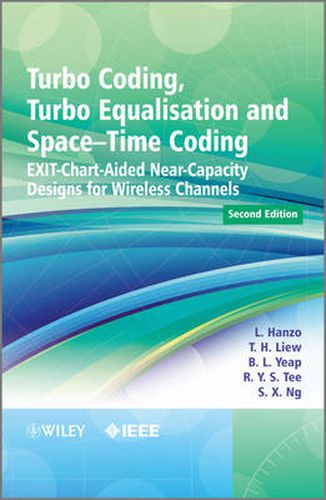Readings Newsletter
Become a Readings Member to make your shopping experience even easier.
Sign in or sign up for free!
You’re not far away from qualifying for FREE standard shipping within Australia
You’ve qualified for FREE standard shipping within Australia
The cart is loading…






Following on from the success of the first edition, this edition will be revised in light of new developments in near-capacity turbo-transceivers. It will include 5 new chapters on: Multilevel Coding Theory; MLC Design Using EXIT Analysis; Space Time Sphere Packing Aided MLC/ BICM Design; MLC/ BICM Schemes for Wireless Internet and Near-Capacity Irregular BICM-ID Design. The book is divided into the following 4 parts: Part 1 - explains the necessary background for novices. It aims to be both an easy reading text book and a deep research monograph. Part 2 - provides detailed coverage of turbo conventional and turbo block coding considering the known decoding algorithms and their performance over Gaussian as well as narrowband and wideband fading channels. Part 3 – comprehensively discusses both space-time block and space-time trellis coding. Part 4 - provides an overview of turbo equalisations, also referred to as turbo demodulation.
$9.00 standard shipping within Australia
FREE standard shipping within Australia for orders over $100.00
Express & International shipping calculated at checkout
Following on from the success of the first edition, this edition will be revised in light of new developments in near-capacity turbo-transceivers. It will include 5 new chapters on: Multilevel Coding Theory; MLC Design Using EXIT Analysis; Space Time Sphere Packing Aided MLC/ BICM Design; MLC/ BICM Schemes for Wireless Internet and Near-Capacity Irregular BICM-ID Design. The book is divided into the following 4 parts: Part 1 - explains the necessary background for novices. It aims to be both an easy reading text book and a deep research monograph. Part 2 - provides detailed coverage of turbo conventional and turbo block coding considering the known decoding algorithms and their performance over Gaussian as well as narrowband and wideband fading channels. Part 3 – comprehensively discusses both space-time block and space-time trellis coding. Part 4 - provides an overview of turbo equalisations, also referred to as turbo demodulation.